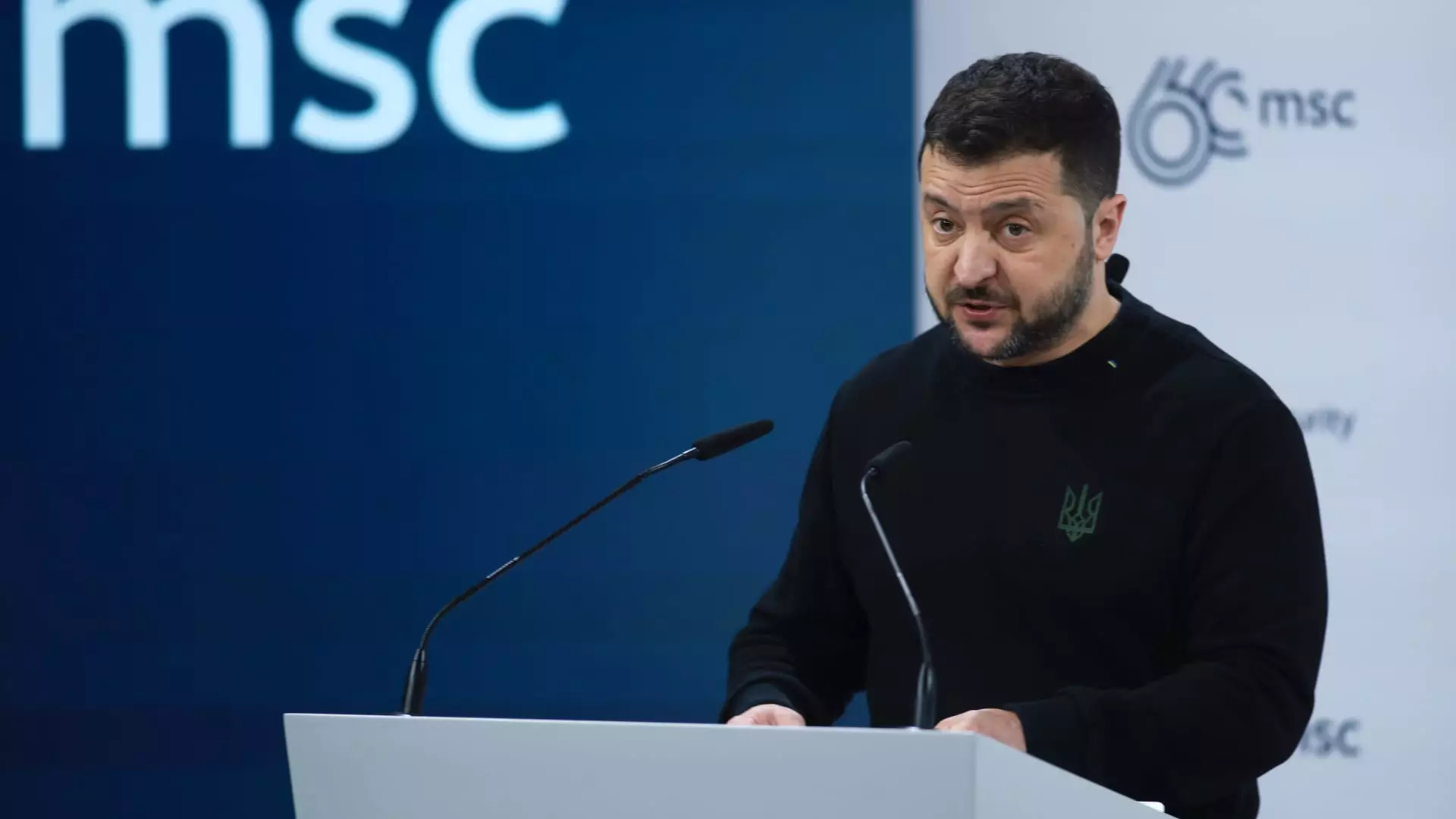Ukrainian President Volodymyr Zelenskyy made headlines by openly inviting U.S. presidential hopeful Donald Trump to visit the war-torn front lines of Ukraine. This move, announced at the Munich Security Conference, demonstrated Zelenskyy’s willingness to confront skeptics of Washington’s support for Kyiv. By extending this invitation, Zelenskyy put himself in a vulnerable position, exposing the harsh realities of Russia’s invasion of Ukraine to a potential critic.
Donald Trump’s stance on U.S. aid to Ukraine has been a topic of controversy, with the Republican frontrunner being critical of the financial and military assistance provided to Kyiv. He has even suggested that he would allow Russia to claim parts of Ukraine if re-elected. Despite his vocal skepticism, Trump recently expressed a willingness to support Ukraine more than the incumbent President Joe Biden. This shift in rhetoric adds a layer of complexity to the relationship between the U.S. and Ukraine.
The ongoing debate in the U.S. over financial aid to Ukraine highlights the uncertainty faced by Kyiv. With a $95 billion aid package, including $61 billion for Ukraine, awaiting approval, the outcome remains unclear. Zelenskyy’s insistence on continued and increased support for his country underscores the critical role that foreign aid plays in ensuring the freedom and security of Ukraine and its European neighbors.
Zelenskyy’s diplomatic visit to Germany, where he met with key European leaders and signed security pacts, demonstrates his commitment to garnering international support for Ukraine. By addressing the reported death of Russian opposition leader Alexei Navalny as a targeted murder orchestrated by Putin, Zelenskyy further solidified his stance against Russian aggression. The upcoming talks with other world leaders at the Munich Security Conference showcase his diplomatic agility in navigating complex geopolitical challenges.
The reported death of Alexei Navalny elicited strong reactions from world leaders, with accusations against Putin for being responsible for the tragic incident. The lack of independent verification of the reports underscores the complexity of the situation. Navalny’s wife’s poignant address at the conference, vowing that Putin and his allies would face consequences for their actions, added an emotional dimension to the discourse on Russian opposition and state-sponsored violence.
Zelenskyy’s bold invitation to Donald Trump reflects the urgency of the situation in Ukraine and the need for global support in the face of Russian aggression. The complex dynamics between political leaders, coupled with the ongoing debate over foreign aid, highlight the intricate geopolitical landscape that Ukraine navigates. Zelenskyy’s diplomatic efforts and unwavering stance against Russian aggression position him as a key player in shaping the future of Ukraine and its relationship with the international community.


Leave a Reply